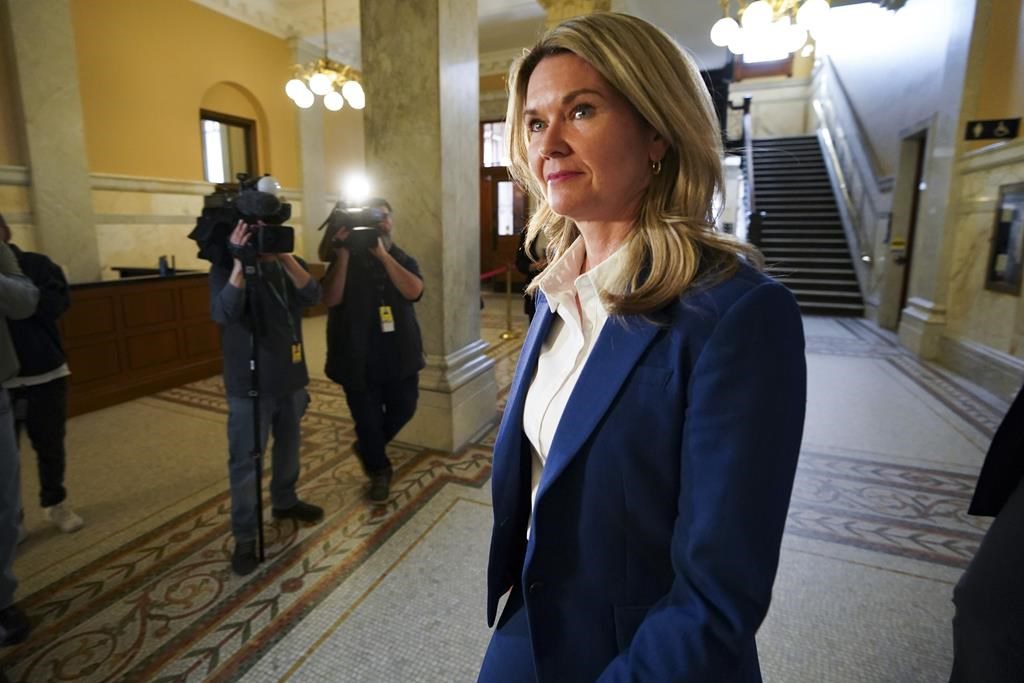Ontario will give priority to its recently reduced number of international undergraduate student study permits to post-secondary institutions that offer programs in the skilled trades, child care, and health care, the province announced on Wednesday.
The federal government said earlier this year that it would reduce the number of international student permits it would distribute, and Ontario's allotment was cut in half.
Colleges and Universities Minister Jill Dunlop stated in a release, "We are safeguarding our province's post-secondary education system by attracting the most talented and brightest international students to study in Ontario in fields that are crucial to our economy."
"We have been collaborating with post-secondary institutions to ensure that international students are enrolled in programs that support a pipeline of graduates for high-demand jobs."
Most of the permits will be given to publicly assisted colleges and universities, while private career colleges will not receive any.
Post-secondary institutions in the province, particularly colleges, turned to international students more frequently after the government of Premier Doug Ford reduced tuition by 10 percent in 2019 and froze it at that level.
The province confirmed last month that the tuition freeze remains in effect.
Last month, Dunlop provided a $1.3-billion funding package to post-secondary institutions, but the colleges and universities indicated that they needed twice that amount. Many post-secondary institutions are operating at a deficit this year.
Ontario's budget this week revealed that the revenue lost from international students in the college sector, which appears in the province's books, will amount to approximately $3 billion over two years.
The province announced that 22 of 23 universities will maintain study permit applications at 2023 levels, but fewer will be allocated to Algoma University. And 11 of 24 colleges will keep the application allotment at the 2023 level. Conestoga College and colleges with public-private partnerships will experience the largest decline, the province stated.
CEO Marketa Evans of Colleges Ontario stated that colleges are pleased that their institutions will receive the majority of the international study permit applications, but they are still facing challenges.
The federal government's changes to student visas have already led to the collapse of the spring cohort at public colleges, and there will be significant repercussions for the fall term with losses in revenue amounting to hundreds of millions of dollars, according to Evans.
"As colleges are not allowed to operate at a loss, this has resulted in substantial efforts to reduce costs," she wrote in a statement.
"The implications include immediate suspensions of programs and a halt to capital investments, including those in student housing."
Steve Orsini, president of the Council of Ontario Universities, stated, "Universities are acting responsibly in their recruitment and management of international students."
Orsini added in a release, "The decision to limit international undergraduate allocations to 2023 levels will impede the ability of universities to slightly increase enrollment, which will intensify financial pressures on the sector."
Federal Immigration Minister Marc Miller has stated that the limit is a response to a recent increase in foreign students and aims to prevent dishonest people from exploiting high tuition fees and offering a subpar education.
“I'm excited to delve deeper into the details of this announcement, but it seems like a sensible move by the Government of Ontario,” Miller commented on social media Wednesday.
Alex Usher, president of Higher Education Strategy Associates, mentioned that the plan is “more promising than I would have expected.”
“It sounds like they have made the right decision, focusing the largest reductions on the institutions with public-private partnerships, as well as Algoma and Conestoga, which are the schools that didn't choose the PPP route but still built entirely new campuses for international students,” he stated.
“There’s some basic fairness in the process there.”



